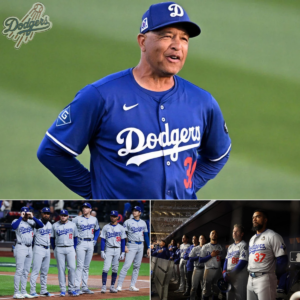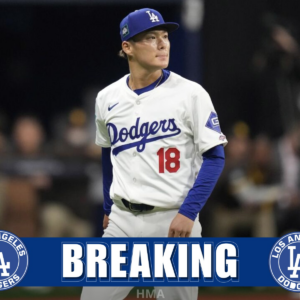Shocking News: Dodgers Captain Shohei Ohtani Sparks Controversy by Boycotting MLB’s Pride Night
In a move that has sent shockwaves through the sports world, Dodgers captain Shohei Ohtani announced his decision to boycott Major League Baseball’s Pride Night, claiming, “On the field, the focus should be baseball, not sobriety.” This unexpected stance has ignited intense debates among fans, advocacy groups, and media outlets, questioning the intersection of sports and social activism.
A Divided Fanbase

Ohtani’s statement has polarized the Dodgers’ fanbase. While some supporters praise his focus on keeping sports apolitical, others accuse him of undermining MLB’s efforts to promote inclusivity and LGBTQ+ rights. Social media platforms have exploded with both condemnation and support for Ohtani’s position, with hashtags like #OhtaniBoycott and #MLBPrideNight trending globally.
The Larger Debate: Sports vs. Activism
This controversy is emblematic of a broader debate in professional sports. Should athletes and teams embrace social causes or stick to their primary role as entertainers? MLB’s Pride Nights have historically faced backlash from religious and conservative groups, as seen in previous incidents involving Clayton Kershaw and the Sisters of Perpetual Indulgence. Advocates argue these events foster inclusivity in a traditionally conservative sport, while critics claim they alienate fans who prefer a neutral stance.
Impact on Ohtani’s Legacy

As one of baseball’s brightest stars, Shohei Ohtani has cultivated a global fanbase that transcends cultural boundaries. However, his boycott risks tarnishing his reputation among progressive fans and LGBTQ+ allies. Will this decision overshadow his extraordinary achievements on the field? Or will it solidify his image as an athlete unafraid to voice controversial opinions?
What’s Next for MLB?
Ohtani’s boycott raises critical questions for MLB leadership. Can they balance their commitment to diversity with the personal beliefs of players? As teams increasingly embrace Pride Nights despite pushback, Ohtani’s stance may force the league to reevaluate how it navigates these cultural divides.
This unfolding drama promises to remain a hot topic across sports media and beyond. Whether you agree or disagree with Ohtani’s position, one thing is certain: this controversy will spark conversations about the role of athletes in shaping societal values.




